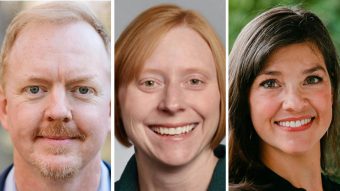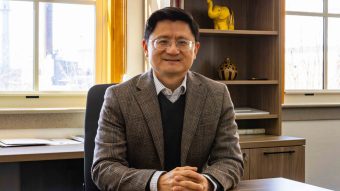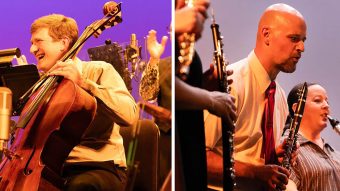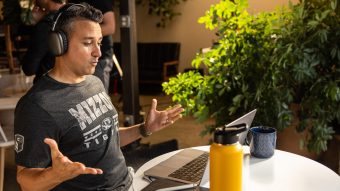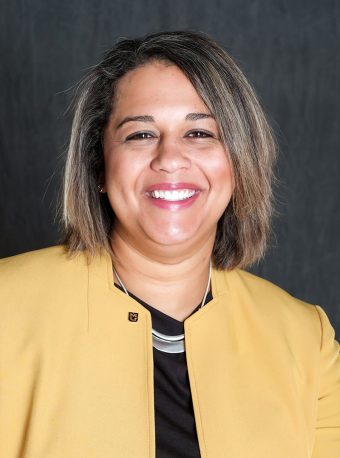
March 9, 2022
Susan Renoe, an assistant professor of strategic communication at the University of Missouri School of Journalism, did not begin her career at Mizzou as a faculty member, but she has always been an integral part of the university’s research activities.
“Susan’s dedication to heightening scientific research in the public eye is an inspiration to everyone at the School,” said David Kurpius, dean of the School of Journalism. “To see our school represented at such a high level in the field of science communication is an endorsement of Susan’s tireless commitment not only to strategic communication research, but to the faculty and students she works with to make a difference on the national stage. I can’t wait to see what she does next.”
Broader impacts
A Mizzou alum, Renoe returned to the university in 2012 as director of the Broader Impacts Network, which, under her leadership, became today’s Connector — which offers resources and professional development to faculty, students, and staff.
Then, in the space of a few months in 2018, she became assistant vice chancellor for research, extension, and engagement at Mizzou and principal investigator and executive director of National Science Foundation-funded Center for Advancing Research Impact in Society (ARIS). In August 2020, she became a faculty member for the first time when she joined the School of Journalism.
“ARIS works between policymakers and researchers, who are really the policy implementers,” Renoe said. “We build capacity for institutions and researchers to engage communities in their work, including science communication and public engagement.”
Much of that work centers on “broader impacts,” which refers to the potential societal benefits of research projects. Since the National Science Foundation (NSF) began requiring an explanation of broader impacts in grant applications more than two decades ago, the requirement — the only one of its kind among federal agencies — has been a source of difficulty and, at times, confusion for researchers who are unsure how to implement the criteria into their work.
Now, as the co-PI on an NSF grant addressing that very issue, Renoe and her colleagues — in partnership with Rutgers University — are currently field testing a broader impacts “toolkit” at three universities, with plans to expand to 10 over the next three years. The toolkit is an interactive, web-based project that guides researchers through the process of creating an effective broader impacts statement for their grant proposals.
Renoe said while the broader impacts requirement has been part of the NSF’s grant criteria for some time, its importance has increased in recent years as projects like the University of Missouri System’s NextGen Precision Health initiative have made community and social impacts central to their work.
